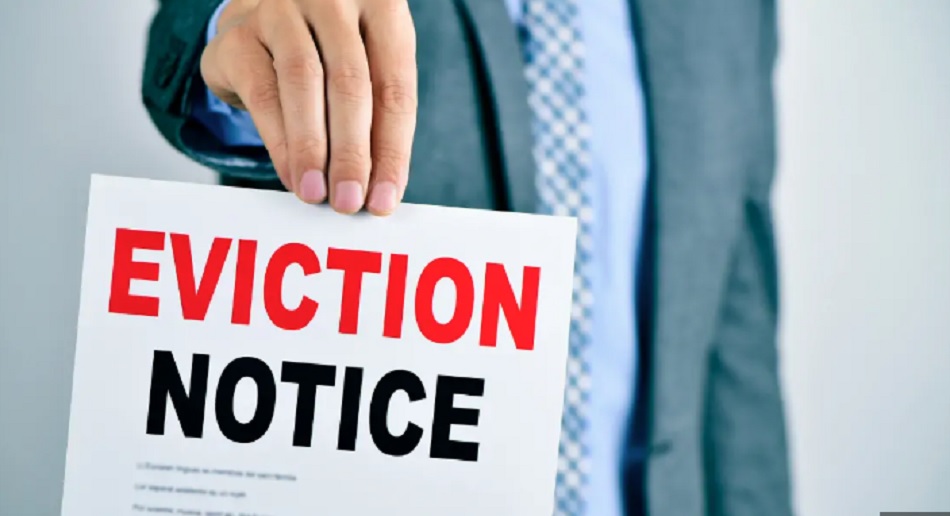
Facing wrongful eviction can be a daunting experience, but you don’t have to navigate it alone. Understanding your rights as a tenant is crucial in these situations. A lawyer specializing in wrongful eviction can be your strongest ally, ensuring that your rights are protected and that you receive the appropriate legal advice and support.
With the housing market becoming increasingly challenging, incidents of wrongful eviction are unfortunately on the rise. We recognize the importance of having someone knowledgeable about tenant law on your side. Our goal is to provide clarity and guidance at each step, so you can take informed actions to safeguard your interests.
By engaging with a legal expert, we can assist in negotiating settlements, representing you in court, or helping reverse the eviction process. We’ll explore what qualifies as wrongful eviction, outline available legal remedies, and explain how a lawyer can effectively advocate for you. Understanding these aspects can make a significant difference in resolving your situation.Learn more about Lawyer for Wrongful Eviction
Understanding Wrongful Eviction
Wrongful eviction can occur when a landlord removes a tenant without following the legal requirements set forth in eviction laws. Recognizing illegal eviction practices helps in safeguarding tenant rights and ensuring housing stability.
What Constitutes Wrongful Eviction
Wrongful eviction includes actions by landlords that violate eviction laws. Commonly, this occurs when a landlord attempts to evict a tenant without providing a valid eviction notice or without a court order. Our understanding of landlord-tenant law emphasizes that evictions carried out without following due process are deemed illegal. Tenants facing wrongful eviction may have a right to legal recourse, such as seeking damages or staying in their home. These actions disrupt housing stability, and addressing them is crucial for enforcing tenant rights.
Common Types of Illegal Evictions
Illegal evictions can involve various actions by landlords, such as changing the locks, shutting off utilities, or using threats and intimidation. Another form is providing a fraudulent eviction notice that doesn’t meet legal standards. Cure or quit notices require tenants to rectify a lease violation, while unconditional quit notices allow no chance for remedy and may be issued wrongly. We must remain vigilant against these tactics to protect tenants and support lawful landlord-tenant relations.
Legal Requirements for Eviction
For eviction to be lawful, specific legal requirements must be met. Landlords must provide tenants with appropriate notice periods and just cause for eviction, such as significant lease violations or failure to pay rent. Our adherence to eviction laws also necessitates that any eviction action receives authorization in court. The Fair Housing Act further prohibits discriminatory practices, ensuring equal housing opportunities. Ensuring landlords meet these legal obligations helps maintain a fair housing environment.
Tenant Rights and Protections
Tenants hold significant rights and protections under the law. They are entitled to safe and habitable living conditions and must be given proper notice before any eviction proceedings. Our focus on tenant rights highlights that landlords must not disturb their peace unjustly or retaliate against them for exercising their rights. Legal avenues, such as housing courts, exist for tenants to challenge unlawful eviction efforts. Knowing and asserting tenant rights serves as a first defense against wrongful eviction and fosters a balanced landlord-tenant relationship.
Legal Recourse and Compensation
When dealing with a wrongful eviction, understanding the available legal remedies and potential compensation is crucial. This section explores navigating an eviction lawsuit, recovering damages, and hiring specialized legal help.
Navigating the Eviction Lawsuit
Pursuing a wrongful eviction lawsuit involves several steps. Initially, we must evaluate the nature of the eviction. Was it retaliatory or discriminatory? These elements affect our legal strategy.
Discussing our case with a real estate attorney is vital. They will help us determine the validity of the eviction notification and whether landlord actions violated our lease agreement. Legal eviction always requires following strict protocols.
We might begin with a demand letter to the landlord, seeking resolution before formal litigation. Should negotiations fail, filing a case in small claims court or a higher court ensures we protect our rights. It’s essential to prepare for the court hearing by gathering evidence like lease agreements and communication records.
Recovering Damages for Wrongful Eviction

Obtaining compensation for wrongful eviction may include various damage categories. Actual damages cover out-of-pocket expenses, like moving costs or higher rental fees for a new apartment. General damages can address emotional distress due to a loss of quiet enjoyment.
Additionally, recovering the security deposit is often possible if it was unfairly withheld. Some cases merit punitive damages, particularly when landlords engage in malicious activities like self-help evictions—changing locks or removing personal property unlawfully.
Legal statutes often allow for compensation of attorney fees, reinforcing the significance of securing skilled legal representation. We should ensure all claims align with local real estate and rental laws, maximizing our potential recovery.
Hiring a Wrongful Eviction Lawyer
Consulting a wrongful eviction lawyer can significantly enhance our position. These professionals specialize in interpreting the landlord-tenant laws that govern the eviction process. They guide us in proving the landlord’s failure to maintain habitability or other legal breaches.
A lawyer’s insights are invaluable in cases involving complexities like retaliatory or discriminatory eviction actions. They’ll assist in selecting the right court—whether small claims or higher—tailored to our specific situation.
Choosing legal counsel adept in tenant rights increases the likelihood of a favorable outcome. We should carefully review potential lawyers, considering their experience and approach to ensure the best representation and an optimal resolution to our case.






